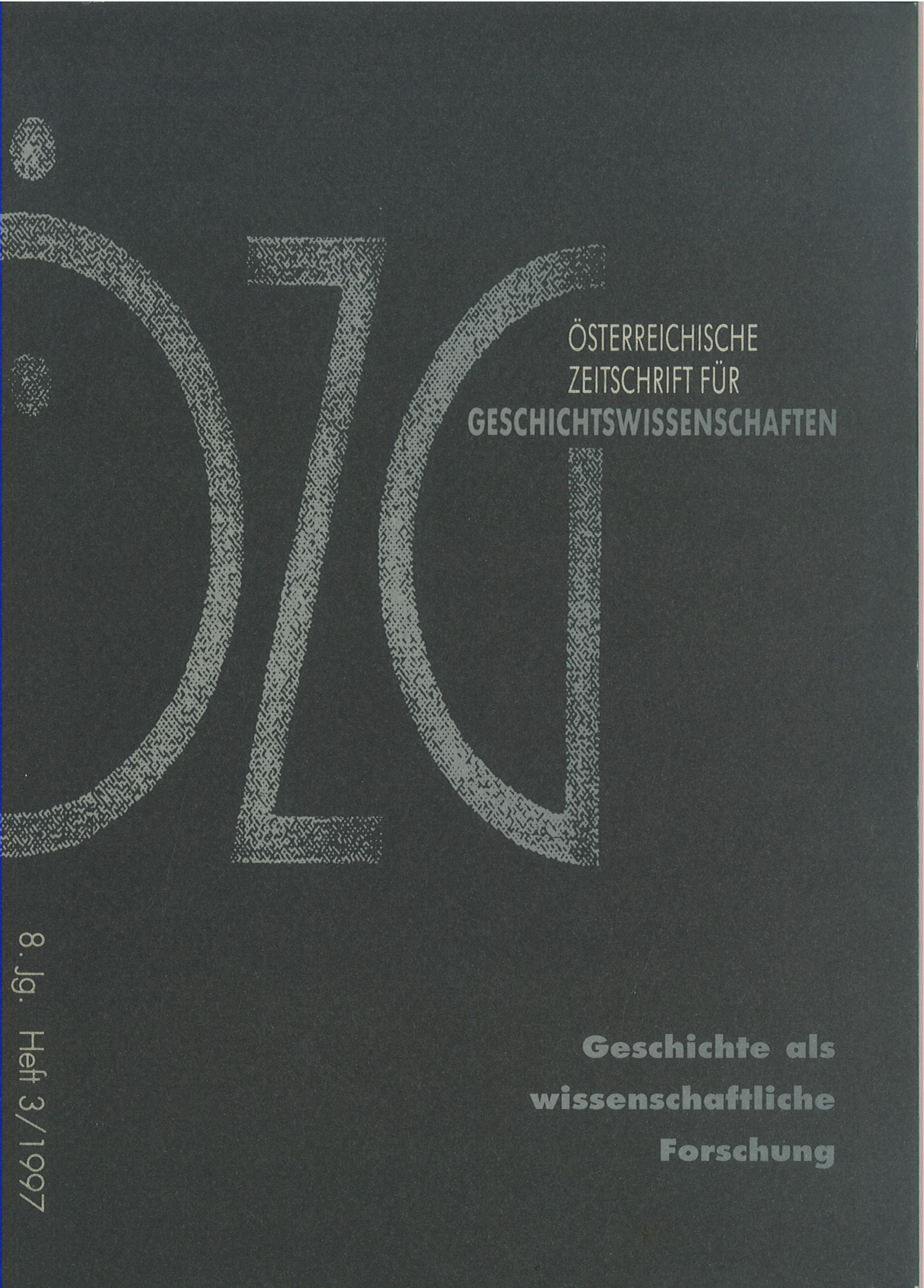Die Verneinung des Ursprungs
Hermann Cohen: von der Soziologie zur Transzendentalphilosophie
DOI:
https://doi.org/10.25365/oezg-1997-8-3-5Abstract
Philosophy usually appears as the fundamental or principal discipline amongst the human sciences, which supposedly developed out of philosophy through a process of gradual specialisation. However, this view actually constitutes a projection of contemporary definitions back onto the past. In order to achieve a more realistic understanding of the relationship between philosophy and the social sciences, it is necessary to firstly, turn our attention towards the period during the 19th century when the relationships between those disciplines were first established, and secondly, to locate ourselves within the structured space of scholarly disciplines, the internal and external boundaries of which constitute the actual stakes in an inseparable theoretical and institutional battle. The neo-Kantian scholar Hermann Cohen (1842-1918), who initially was interested in anthropological perspectives, only to turn his back on them and formulate a conception of philosophy based on radical claims of purity is a particular revealing case in point.


